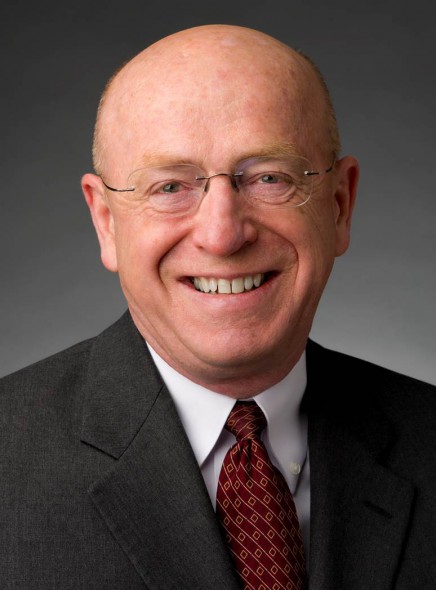UW System Reorganization a Bold Plan
What’s good and what could be improved in UW President Ray Cross’s proposal.
Falling enrollments at the 13 UW Colleges and mission confusion at UW Extension propelled UW President Ray Cross to embark on a reorganization of those two cornerstones of the UW System (UWS).
He did the reorganization along regional lines. That’s a sound move. At the ground level where the real work is done, the economy of the state works in regions. If the economy revolves around regional development organizations like M7 in the Southeast and NEW North in the Northeast, should not UWS, which positions itself as “an economic engine” for the state, be organized along the same lines?
Heretofore, UWS has been Madison-centric. Its headquarters is there, when it should be in Milwaukee. Its great flagship campus is there, when we need a flagship campus in each region.
That said, Cross’ plan is a necessary first phase. The 13 two-year colleges will be consolidated with nearby four-year campuses, and the Extension will be folded into UW – Madison’s operations and into UWS.
In the M7 Region, UW – Waukesha and UW – Washington County in West Bend will become part of UW – Milwaukee, the state’s second PhD flagship campus.
- The colleges have been struggling on the enrollment front, having dropped 32% since 2010. These highly valuable entry-level colleges need a home and support.
- The colleges are already organized on a regional basis. The chancellor of the colleges eliminated the dean positions, making the 13 colleges faceless in their communities. Groups of three or four campuses were put together for purely administrative purposes.
- The two-year campuses have evolved into four-year campuses under the university center concept. Professors from the comprehensive four-year universities deliver baccalaureate degrees there, such as a UWM nursing degree at West Bend. So there are already relationships with four-year universities.
- The colleges, which will become branch campuses for the comprehensives, will be feeders for the four-year campuses, some of which also have enrollment challenges.
- The satellite campuses will still offer affordability through lower tuition for the first two years and the option for students to live at home and work locally.
- The branch campuses are close to their local economies and can meet the demand for certain kinds of graduates, such as the two engineering degrees offered at the West Bend campus. (Side note: Nearby UWM could be delivering the engineering degrees at UWWC, instead of more distant UW – Platteville.)
- The underpaid professors at the colleges presumably will be incorporated into the pay system for the four-year universities. They need to be treated more fairly for the excellent work they do with first and second-year students.
- Students at the branches should see smoother transfers to the main campuses.
Cross’s proposed reorganization did not get much sunshine before his surprise announcement. It needs to be thoroughly vetted in public. There should be no rush to decision at the November meeting of the UW Board of Regents. There should be legislative oversight.
Here are just a couple of the important and sticky issues that need to be aired before the regional reorganization is put into place:
Ownership of the facilities? The buildings at the two-year level have been paid for at the local level, not by UWS. Who owns them going forward and who pays for their maintenance, local government or the parent campuses? Who will pay for needed expansions and upgrades at the 13 campuses?
- Why weren’t struggling four-year campuses included in the reorganization, such as UW – Parkside into UWM and UW – Superior into UW—Eau Claire?
- Will the regional chancellors be given more autonomy over their cost structures, such as sourcing health care at the regional level? Great savings could accrue.
Cross has recommended a bold move. Give him credit. But it needs to be done right.
And this may be an opportunity to the Regents to be even bolder by regionalizing all 26 campuses, not just the 13 colleges.
John Torinus is the chairman of Serigraph Inc. and a former Milwaukee Sentinel business editor who blogs regularly at johntorinus.com.
Op-Ed
-
Unlocking Milwaukee’s Potential Through Smart Zoning Reform
 Jul 5th, 2024 by Ariam Kesete
Jul 5th, 2024 by Ariam Kesete
-
We Energies’ Natural Gas Plans Are A Mistake
 Jun 28th, 2024 by John Imes
Jun 28th, 2024 by John Imes
-
Milwaukee Needs New Kind of School Board
 Jun 26th, 2024 by Jordan Morales
Jun 26th, 2024 by Jordan Morales





















I agree with your thinking. Cross’ plan seems like a great start. I also would like to see more Bold action in the future. I can foresee UW Madison plus three more regional campuses. The 4 year and 2 year schools along the western side of the state would be one regional campus. Stevens Point, Oshkosh and Green Bay + 2 year schools would be the foundation for the northeastern region. And UWM, Parkside and Whitewater plus 2 year schools would form the Southeast regional campus. These groupings just make sense to me. Students in each region would have much greater educational opportunities. Faculty could teach courses at each site. Regional medical networks provide wonderful examples of how this has worked well.